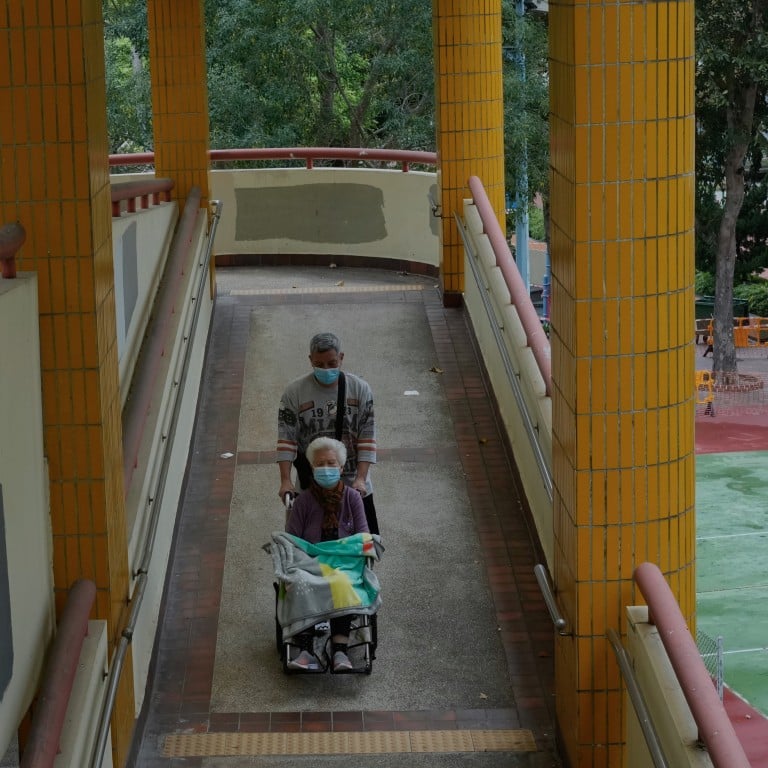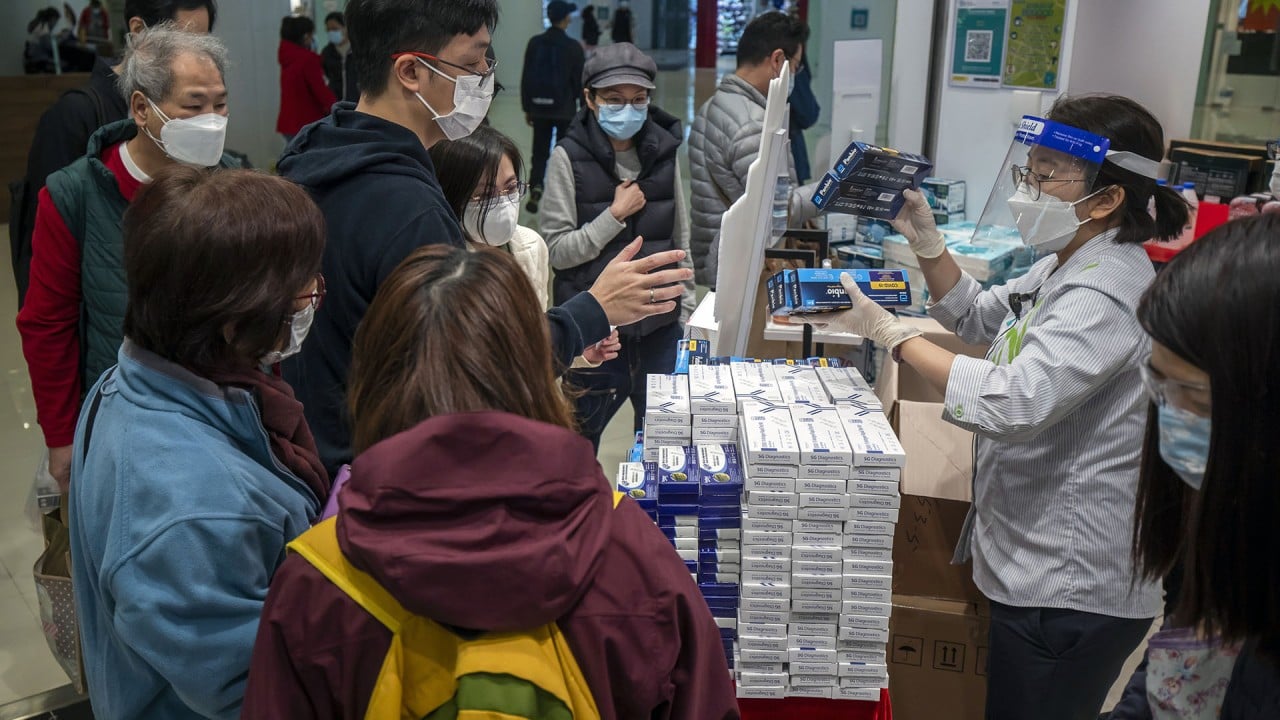
Sick of social distancing in Hong Kong? The elderly have it worse, and they need help
- Depression among elderly Hongkongers seems to have reached crisis level amid the fifth wave
- Despite the social distancing restrictions in place, people could be more sensitive to older adults’ emotional needs and reach out to them more
There were 14 cases of reported suicides among those aged 61 and above within a recent seven-day period in Hong Kong, against an average of around three per week in the past year. This exceeded the crisis level on the Centre for Suicide Research and Prevention’s early warning system for the first time since it was launched in 2020.
The sudden spike is a serious wake-up call about mental wellness, especially that of older adults. The pandemic has already brought anxiety, sadness and anger, not to mention feelings of helplessness and hopelessness.
Amid the Omicron wave, news of the high fatality rate among unvaccinated seniors, and of the overwhelmed health system, has made the situation worse. It was reported that some of the elderly suicide cases had tested positive for Covid-19.
Still, Omicron has exposed the unpreparedness of the government. And, for the population, this has meant having to take their social responsibilities more seriously. In the face of inconsistent measures, Hongkongers still do their best to observe them, while trying to contain the damage.
There has been an encouraging movement in the community to provide material support to older adults and make up for the government’s lack of service. Volunteers have come forward to help vaccinate older adults, assuring them they have not been forgotten in the battle against Omicron.
As some older adults mainly receive information from free-to-air TV, we need to make sure they are kept well informed. Better yet, there could be a TV channel devoted to Covid-19. Instead of merely delivering an endless replay of pandemic press briefings, however, this platform should also engage viewers, connect with them and lift their spirits. We must remember that hope is essential.
Despite the many social distancing restrictions, family members could be more sensitive to older adults’ emotional needs and reach out more. Even when physical visits are out of the question, a phone call can make a difference. The lack of visiting arrangements in hospitals and elderly care homes can be isolating and depressing.
It is time to rethink how to face the challenges thrown up by the pandemic. Epidemic control has never been easy, and it is a test of our ability to respond to a complex crisis nimbly and effectively.
While the government’s response has been disappointing, each of us can step up and play a role in the fight against the epidemic by helping seniors who might be living alone, and giving what we can to those in need.
There is no telling what the pandemic might bring next, yet those aged 65 and above and who are at risk account for more than 20 per cent of the population. The government may not be able to cope, so the rest of us will have to work harder to beat the epidemic. We did it before with the severe acute respiratory syndrome (Sars) outbreak in 2003, and there is no reason we can’t do it again.
Paul Yip is director of the HKJC Centre for Suicide Research and Prevention at the University of Hong Kong


